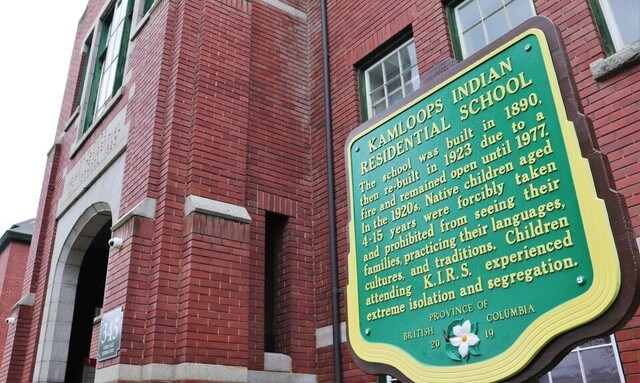Canadian journalism groups have awarded the federal government their federal Code of Silence Award for Outstanding Achievement in Government Secrecy for its continuing silence on residential school records.
The Canadian Association of Journalism (CAJ) said that, nearly 10 years after the publication of the Truth and Reconciliation Commission (TRC) final report, Ottawa continues to fight Indigenous groups from across the country seeking access to records surrounding residential schools.
“The Truth and Reconciliation Commission painstakingly documented the horrific abuses of colonial power perpetrated against generations of Indigenous peoples,” CAJ president Brent Jolly said.
“Despite the TRC’s findings of a ‘cultural genocide’ being committed against Indigenous peoples, the federal government continues to expend considerable efforts that prevent communities from accessing valuable documents that attest to the details of this truth,” Jolly said. “It’s shameful.”
He said a said there have been calls for decades for governments and churches to turn over all residential school records.
However, survivors and their families find themselves continuing having to fight for access to documents that could explain what happened to family members, Jolly said.
The CAJ said federal information commissioner Caroline Maynard in February 2024 told a Senate committee that “we need good government leaders that believe in open government and provide guidance and clear objectives within their department” in order to expedite the release of records.
That committee was examining barriers to the release of residential school records of deaths.
“It comes from the top,” Maynard told the committee. She said if Canada’s leaders believe in openness and transparency, disclosure would be more proactive and freedom of information requests wouldn’t be needed.
“Access to information requests should be the last resort for obtaining information,” she said.
That committee issued a with multiple recommendations, including one that the federal government “adopt a formal policy to proactively disclose information pertaining to Indigenous peoples and residential schools and to prioritize negotiation and mediation to resolve conflicts rather than litigation.”
Jolly said Ottawa has a moral obligation to ensure all records are made available in order to ensure truth, justice, and redress.
“The legacy of the residential school system is a systemic scar on our country’s history that continues to go unhealed,” he said.
The awards are presented annually by the CAJ, the Centre for Free Expression at Toronto Metropolitan University and the Canadian Journalists for Free Expression.
The CAJ said the awards call public attention to government or publicly funded agencies that work hard to hide information to which the public has a right to under access to information legislation.
The CAJ’s 2024 winner in the provincial category will be announced on April 30.


